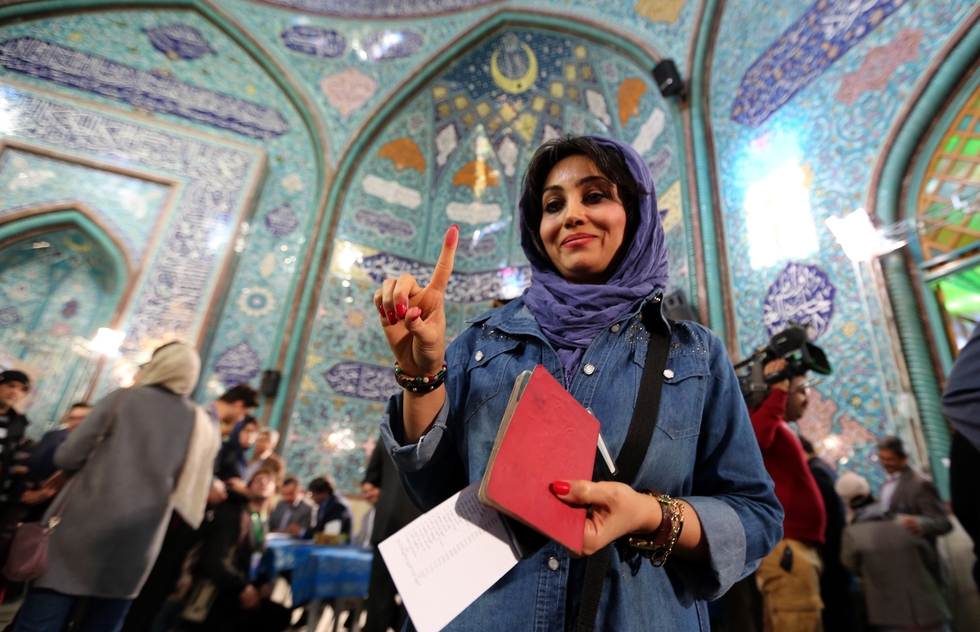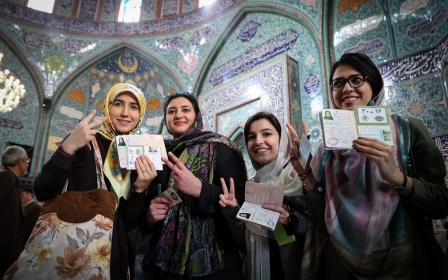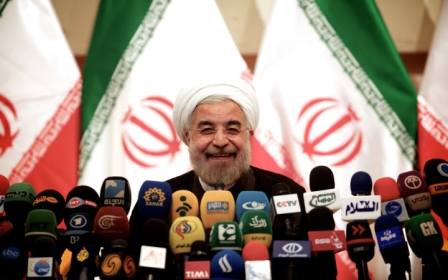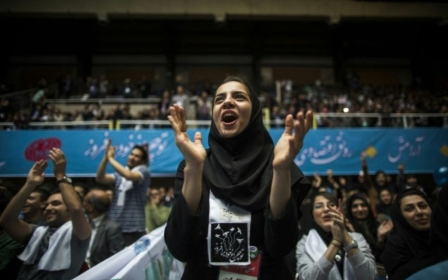Iranian reformists win majority in parliament and key religious body

Reformists and moderate conservatives in Iran have won a majority in parliament, Iranian authorities announced on Monday, dealing a blow to the country’s hardliners in the first elections since last summer’s landmark nuclear deal with world powers.
Iran’s Interior Ministry released results broadcast on state television that showed reformists, who support greater engagement with the international community, won at least 85 seats in the 290-seat parliament.
Conservatives who supported the nuclear deal won 73 seats, meaning that the two lists together have a total of 158 seats.
Hardliners who opposed the nuclear deal won 68 seats, which is a significant reduction from the more than 100 seats they hold in the current parliament.
Five of the remaining seats will go to religious minorities and the other 59 will now be decided by a run-off vote, which Reuters reported is likely to be held in April.
The turnout was 62 percent for the parliamentary vote, according to Interior Minister Abdolreza Rahmani Fazli.
In a separate vote for the Assembly of Experts, which is an 88-member body that will elect the country’s next supreme leader, perceived moderates also scored a victory.
President Hassan Rouhani and former president Akbar Hashemi Rafsanjani, both described as moderates, have retained their seats, the Interior Ministry reported.
The make-up of the Assembly of Experts is likely to prove vital to the country’s future, as current Supreme Leader Ayatollah Ali Khamenei, 76, underwent prostate surgery in 2014. The assembly is elected every eight years.
Two leading hard-line ayatollahs, Mohammad Yazdi and Mohammad Taghi Mesbah-Yazdi, lost their seats on the Assembly of Experts.
The reformist alliance had campaigned against both Yazdi, the outgoing chairman of the Assembly of Experts, and Mesbah-Yazdi, an outspoken opponent of the reformists.
But a third conservative, Ahmad Jannati, who had been targeted by the pro-Rouhani coalition, narrowly kept his seat on the assembly, state television reported.
Jannati, who chairs the conservative-dominated Guardian Council which must confirm the results of last Friday's elections for both the assembly and for parliament, came 16th in Tehran, scraping the last of the capital's 16 assembly seats.
Rouhani placed third in polling for the assembly in Tehran and his key ally, former president Ayatollah Akbar Hashemi Rafsanjani took first place.
The race for the Assembly of Experts saw claims from prominent conservatives of foreign interference and some accused the Rouhani-Rafsanjani slate of being "a British list".
On Sunday as it became increasingly clear that Yazdi and Mesbah-Yazdi were set to lose their seats, the head of the country's judiciary, Ayatollah Sadegh Larijani, echoed those allegations.
Reformists worked with "American and English media outlets" during the poll, Larijani charged.
"Is this type of coordination with foreigners in order to push out these figures from the Assembly of Experts in the interests of the regime?" he asked.
Rouhani's government dismissed the accusations when they were first made during the election campaign.
"We don't have anything such as a British list and if anyone wants to say that there is such a list, they are in fact insulting the Guardian Council," said government spokesman Mohammad Bagher Nobakht, a vice president.
The Guardian Council approved all candidates who ran in the elections for parliament and for the Assembly of Experts.
Sixteen women who had applied to run for the latter were disqualified.
Millions of Iranians voted on Friday to elect members of the country’s 290-seat parliament and Assembly of Experts.
It was the Islamic Republic’s first elections since it signed a historic nuclear deal last July with world powers.
According to the Iranian Republic News Agency, the Interior Ministry Headquarters for Elections counted a total of 4,500,894 votes for the Assembly of Experts out of 6,124 ballot boxes.
IRNA also quoted Ayatollah Khamenei, 76, who said that the nationwide 60 percent turnout proved "the brilliant face of religious democracy to the world".
New MEE newsletter: Jerusalem Dispatch
Sign up to get the latest insights and analysis on Israel-Palestine, alongside Turkey Unpacked and other MEE newsletters
Middle East Eye delivers independent and unrivalled coverage and analysis of the Middle East, North Africa and beyond. To learn more about republishing this content and the associated fees, please fill out this form. More about MEE can be found here.




